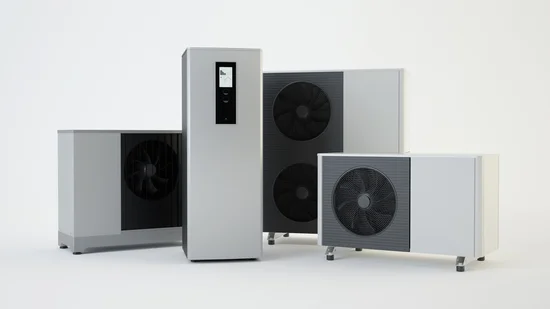Introduction
As newer technologies enter the market the question always is - how does this impact my business? Inverter Heat Pumps is the new tech on the block and is a powerful opportunity to transform home comfort and your bottom line. As innovation comes, the HVAC industry only gets more complicated - but let’s dive into this article to review the high level considerations on Inverter Systems, why they matter, and how they can help you grow your business.
I. Traditional Heat Pumps vs. Inverter Heat Pumps
To kick-off, let’s first review the differences between Traditional Heat Pumps and Inverter (Variable-speed) heat pumps. Traditional heat pumps cycle between on and off states to maintain indoor temperature - which isn’t the most efficient. These systems cannot control their energy output, and also may strain the system more than necessary, when they cycle on and off.
Meanwhile, Inverter (Variable-Speed) Heat Pumps operate at varying speeds, adapting to the cooling or heating demands.
What is an inverter you may ask? An inverter is an electronic device that converts direct current (DC) into alternating current (AC). For an inverter-driven heat pump, the inverter controls the speed of the compressor motor to regulate the produced output. Specifically, the speed of the compressor, which is responsible for circulating refrigerant between the evaporator coil and condenser coil, can be varied to maintain a consistent temperature. By enabling the compressor to run at different speeds, inverters help the system use only the amount of energy required for the current conditions. This dynamic adjustment is more energy-efficient compared to systems that only operate in an on-off binary mode. Together, when paired with variable speed blowers, these are termed "multi-speed" or “variable speed” heat pumps.
II. Benefits of Varying a Compressor's Speed
There are five key reasons that varying a compressor’s speed matters:
- Cost Efficiency: Initiating the heating or cooling cycle frequently, when the system short cycles, can be expensive. Inverter heat pumps mitigate this by operating continuously at lower speeds, reducing the overall energy required to run them.
- Operational Efficiency: At low speeds, inverter heat pumps can achieve coefficients of performance approaching 14. This is compared to the typical coefficient of performance range from 2.0 to 4.0 for heating and cooling - meaning that for every unit of electricity consumed, the heat pump can produce now 14 times the amount in heating or cooling energy (compared to the typical 2 to 4 times that amount in heating or cooling energy).
- Equipment Longevity: The startup spike, common in traditional systems, can wear down the equipment. Inverter systems reduce this stress by running more continuously.
- Improved Humidity Control: Traditional systems that short-cycle may struggle to dehumidify adequately with reduced run time. This reduced run time means the evaporator coil doesn't stay cold for long durations, which limits the amount of time available for the moisture in the air to condense on the coil. Even if the temperature seems comfortable, high humidity levels can make indoor spaces feel warmer and more muggy in the summer (and colder in the winter).
- The switch to something that creates the same temperature conditions at lower humidity levels makes the room more comfortable - and often yields savings because homeowners now can leave their thermostat at higher temperatures than otherwise.
- Precise Temperature Control: Inverter-driven systems can achieve and maintain desired temperatures with more precision. Since the system can modulate its operation, it can smoothly adjust to changes in demand without the abrupt starts and stops of traditional systems.
III. The Importance of Correct Sizing
We all know how important system sizing is to ensure efficient operations, home comfort and proper dehumidification. But one question we often get is: if variable speed systems can modulate their speed, does size matter?
In fact, it often matters more! An oversized variable speed unit will frequently cycle on and off as its lowest operational speed might still over-condition the space. This not only reduces efficiency but also reduces dehumidification, while accelerating wear and tear on the system.
IV. Recommendations for Achieving the Right Size
System sizing revolves around understanding the building envelope and your space’s energy needs. Following a Manual J load calculation process can help you determine the right size of equipment for inverter heat pumps or single stage heat pumps.
V. Conclusion
Inverter heat pumps are a powerful technology - when sized appropriately. System sizing and optimized performance, longevity, and efficiency are both intertwined. If you’re looking to evaluate the right equipment for any home, our team at Conduit Tech can help ensure you are using the right tools to get there. If you’re interested in learning more, book a time or reach out to our team or follow along our blog to learn more!

